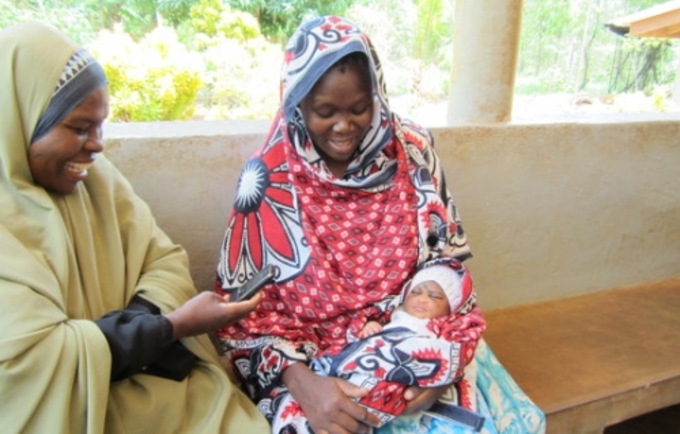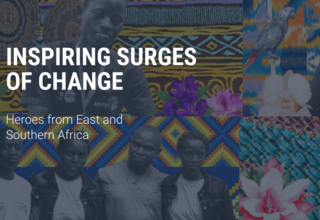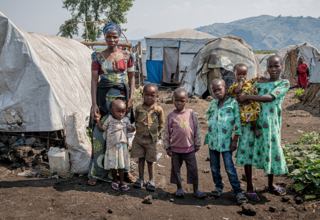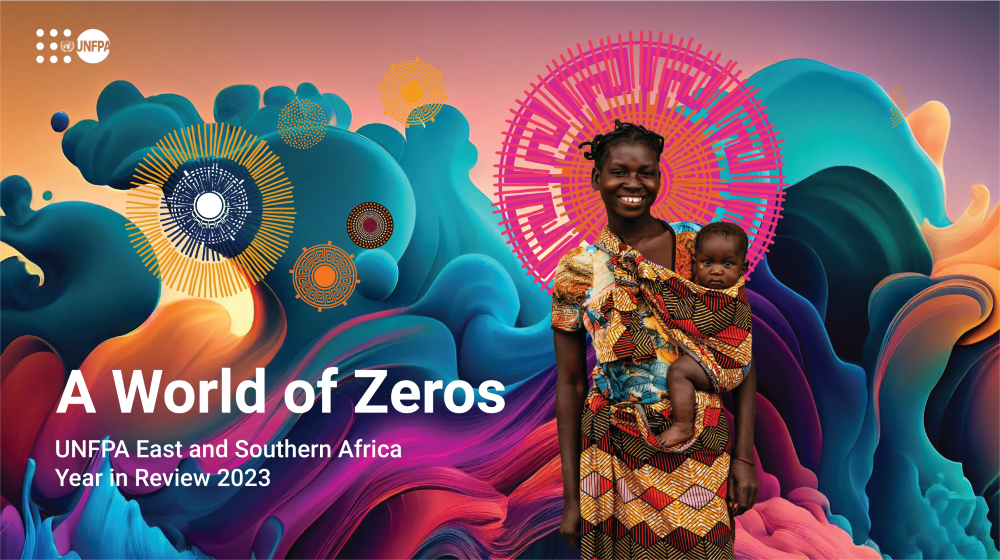"I felt something was wrong with my labour and I called the midwife, who told me to come to the health centre. The midwife there tried to help me and even called the hospital to ask for advice. Then she called again and the hospital sent an ambulance for me. I had an operation and my child survived."
When the results of the Wired Mothers Initiative in Zanzibar were first presented, Taifa’s experience was one of the moving success stories that were told. What had saved her baby's life was a mobile phone. Taifa was one of the 1300 pregnant Zanzibari women that had registered their mobile phones with the local health clinic upon their first antenatal visit. Since then they had received a number of benefits, such as helpful text messages on their mobile phones about what kinds of foods to eat, how to prepare for the arrival of their babies and reminders on when to attend the next antenatal check up. They were also given a nurse's cell phone number in case of any questions or emergencies - a life saving number, as it turned out for Taifa.
Mobile phone use growth in Africa harnessed for health
While for millions of people it is still difficult to access primary health care services, a staggering 90 per cent of the world’s population has access to mobile phone networks. Of the regions, the African mobile phone market has the highest growth rate. The exponential increase in mobile phone use on the continent has inspired a new industry of health-related electronic applications and programmes for mobile phones, ranging from tools for data collection, public health education and communication, to specialized diagnostic tools. Mobile health, known as mHealth, is the term for describing the use of these telecommunication technologies and their use in medical and public health practices.
"MHealth is happening quickly, it’s happening in Africa and it’s happening in those hard-to-reach areas where most people live but where access to health services is difficult. There are many mHealth initiatives now targeting these rural areas and women and children,” according to Steve Ollis of D-tree International, a non-profit organization committed to changing the way health care is delivered in developing countries and a key player in Tanzania. Looking at the experience of Tanzanian mHealth projects, D-tree stated that the use of mobile phones has decreased transaction costs for both clients and providers, increased the transparency of processes and provided great opportunities for engaging the private sector in development.
‘Wired Mothers’, the intervention that helped Taifa deliver her baby safely, is an example of an initiative that explores how maternal health can be improved through linking pregnant mothers to health facilities using mobile phones. It was triggered by a review of maternal deaths in Zanzibar, a semi-autonomous island state of Tanzania. Through the intervention, Danida, together with the University of Copenhagen and the Ministry of Health in Zanzibar, was able to improve clinic attendance for antenatal and postnatal care, the level of skilled delivery attendance as well as access to reproductive health information, all crucial to save the lives of women and newborns.
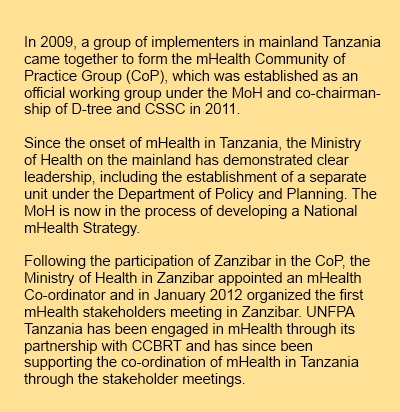
Success stories of improvements in maternal health generated by mHealth projects such as this are increasingly receiving global attention. Under the banner of the Women Deliver Initiative, eight mHealth projects have been nominated for the top 50 inspiring ideas and solutions that deliver for girls and women. Among them is the CCBRT Fistula Ambassador Programme, which has been nominated in the technology and innovation category.
Since 2009, UNFPA in Tanzania has been partnering with Comprehensive Community-Based Rehabilitation in Tanzania (CCBRT) Disability Hospital on the Mpesa Fistula Ambassador Programme. The project has been tremendously successful in increasing access by women suffering from fistula to life changing surgery at CCBRT. Using Vodacom’s M-PESA mobile-to-mobile banking technology, money is sent to women with fistula to cover the cost of their transport to CCBRT Disability Hospital in Dar es Salaam.
“As one of the main partners that supports maternal health in Tanzania, over the past few years we have seen the great benefits of projects like Wired Mothers and Mpesa CCBRT in bringing health care closer to women in need,” said UNFPA Country Representative Dr. Julitta Onabanjo. “mHealth offers an opportunity that we need to make use of if we are to move Millennium Development Goal 5 forward.”
Tanzania is setting the stage worldwide for integrating mHealth as a component of the national health system. In 2009 the mHealth Community of Practice Group (CoP) was established as an official working group and in 2011, Tanzania began developing a global first – the National mHealth Strategy.
With this step, the country has entered a new dimension of health care delivery, one that gives hope that success stories such as Taifa’s will become a reality for many more women in this world.
— Friederike Amani Paul
For more information, contact:
Stine Lund,Wired Mothers: stine_lund@dadlnet.dk
Steve Ollis, D-tree International: sollis@d-tree.org
